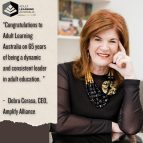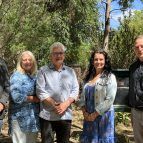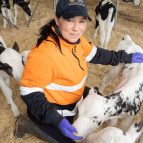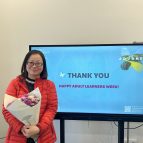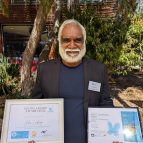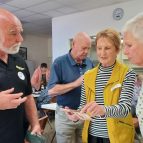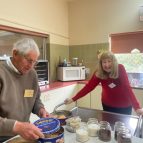COVID learnings
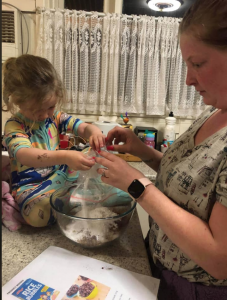
From rural Mildura to the suburbs of Melbourne and Sydney, three adult education providers describe the challenges and changes they faced during COVID-19 lockdown.
Zoe Support, Mildura
Merinda Robertson, Manager of Zoe Support, which offers wraparound services to help young mums re-engage with education says they were fortunate to have a young client group. ‘They are much more comfortable with technology than the staff, so that transition was easier.’
But Merinda says the length of the lockdown had an impact. ‘Initially everyone was very positive, “We can do this, this is fine.” But as the months dragged on it got harder and harder.’
While some pre-accredited programs such as Bridging Literacy and Numeracy and Financial Literacy made the transition to flexible delivery, Merinda said others such as the retail skills program run at the Little Sprouts social enterprise opportunity shop were suspended.
Making the change from in person to remote learning has tested staff skills in creativity and innovation. One example was the Earth to Table pre-accredited cooking program which moved from face to face to home delivery.
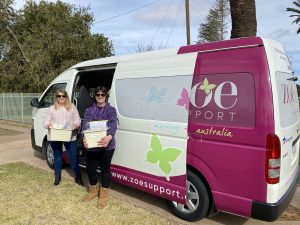
‘Our amazing tutor Karen did a mountain of work to keep this program going in a new format. She worked out a menu every week, then made instructional videos of herself cooking, and created boxes of all the ingredients that she and Margie, our bus driver hand delivered to all of the young mums in the course.’
Demand for the course soared, going from 5–8 in the onsite classes to 18 during lockdown. ‘It was really great, the mums were really engaged and taking photos of what they’d cooked and sharing them on Facebook. They posted some great photos of their kids participating too and seeing the kids standing on stools and stirring and preparing ingredients was really great. Usually the kids would be in childcare while the mums do the class but because they were doing it from home the kids got involved too.’
Merinda says keeping clients connected despite the lockdown was a priority. ‘Staff were in constant contact with clients — through text messages, sending links to activities for kids, and using Facebook groups to stay in touch. ‘I think what we’ll hold onto once things are back to normal are programs where mums and their kids can participate together because we saw that offered just a fantastic connection and opportunity for bonding. ‘And in our Bridging program we’ll continue to use apps and iPads and tools in teaching that we made such good use of during COVID lockdown.’
Wellsprings for Women, Dandenong
Wellsprings for Women, based in Dandenong in Melbourne’s south-east, engages around 500 women each week from across the municipality. The women come from 39 different countries and speak 33 different languages.
CEO Dalal Smiley said training and access to technology was a priority. ‘We distributed laptops and PCs to about 90 women and dongles and internet access to many more. We also set up an IT helpdesk so we were able to support women to connect with their classes.
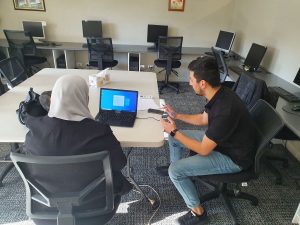
‘Staff starting calling each one of the 500 women enrolled as soon as lockdown started to find out about their capacity for remote learning.
‘We’ve been able to engage the majority of the women involved with us but for some life has been quite difficult. For women with very low digital literacy and limited English online learning was impossible so we offered English lessons by phone.
‘Lockdown has forced us to invest more in our digital capability and technology and this is the way forward for next year and beyond. We will continue to make our courses and services available both face to face and online. Necessity pushed us into new areas of growth.
‘With our IT help desk, I am hoping that we can continue that. We contracted a young man who has been really helpful to both participants and staff. It’s so important to give our participants equipment but often they need support in knowing how to use it. He went out and delivered laptops and pcs and showed women how to do things like use Zoom, and create and set up an email account.
‘A lot of the women have no presence online so they were starting from scratch. It’s amazing how many feel so confident now and are loving it. It’s so liberating for them. They now have things like myGov accounts and through access to the internet they are discovering the joy of being able to do things in a very convenient way.’
‘I nearly fainted when I saw the first phone bill. It quadrupled during lockdown. But I got in touch with Telstra and they gave us unlimited calls because they understood the necessity of what we were doing.’ Dalal Smiley, Wellsprings for Women
‘I think what has emerged is the importance of recognising the value of a diverse workforce. All of my staff are from different backgrounds. They speak different languages. To be able to speak to families in their own language has been such a blessing. Translated material is not nearly as effective as direct communication. We are very fortunate to have staff who don’t have to waste time trying to build rapport with people in our community because that trust is already there.’
MTC, Sydney
MTC offers training at 16 venues across Sydney and ceased face to face training in April in the best interests of the students.
Carla Dawson Instructional Design Manager says she and her team of eight have been ‘crazy busy’ during the pandemic. ‘We’ve been flat out. Our workload increased exponentially.’
‘Our biggest focus was our Skills for Education and Employment (SEE) students because they have little or no digital skills or access to technology. We developed hard copy booklets that were topic based but designed for multiple levels of English literacy.
‘We haven’t just offered paper-based correspondence classes we tried really hard to keep students engaged using Teams for online classes even if they only dialled in on their phones. It was a great way of catching up and learning, especially in terms of oral communication.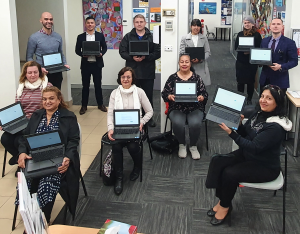
‘I am amazed and blown away by the reaction of teachers and students to online learning. They just kept at it. Students maintained great attendance and teachers were really pleased with these great results.
‘When we surveyed our students, they said they missed the social interaction and classroom-based learning but overall they were positive about the quality of the training and studying at home.
‘I think we’ve developed so many things as a result of COVID. We’re saving so much paper because we’ve streamlined our processes by digitising paper-based forms. We’ve now got digital resources and there are so many things we can do with these in the future.
‘Online delivery offers our students much more flexibility in how and when they attend. As for my team, we have benefited from being thrown in at the deep end. It was a case of learning as you go and not being afraid to make mistakes. They’ve done an amazing job.
‘Overall COVID lockdown has improved both our services and our teaching.’ Carla Dawson, MTC
Download the pdf Quest 4, 2020.

